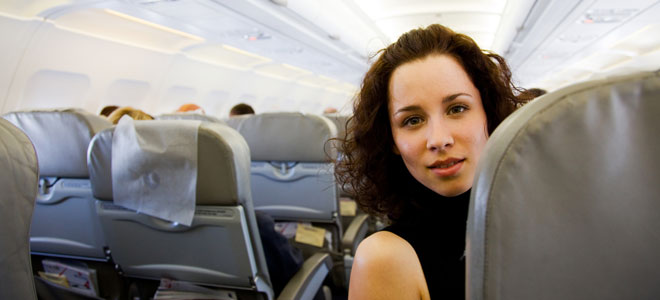We already know that when we talk about jet lag, we are referring to the fatigue caused by a trip that crosses different time slots. Our body is sensitive to the action of sunlight, which passes through neurotransmitters through melanin. When the time in which the body is exposed to light is altered, so are many bodily processes that are governed by the biological clock of day and night: hormones, digestion, stress and brain state.

Jet lag symptoms
Traveling from one part of the world to another with a different time zone affects our body. The symptoms are diverse and can vary from one person to another, but generally travelers suffer from fatigue, confusion when making decisions, mood swings and irritability, digestive problems such as vomiting and diarrhea, minor memory loss, apathy and sleep disorder. It is very difficult to avoid jet lag, since it is an intrinsic disorder of long-term travel. However, its symptoms can be minimized and at least prevent them from ruining the first days of your trip or your return.
How to minimize its effects?
Our circadian rhythm is less confused if we travel west because the experience of the body clock is prolonged and the day-night cycle is less distorted. However, if we travel to the east, it means traveling in the opposite direction to the body clock. It is also important to get a good night’s sleep before embarking on a trip and try to get as much sleep as possible during the trip.
Controlling the hours of sleep so that they do not affect our stay in the country to which we are going to travel is a complicated but not impossible task. There are some basic tricks that will prevent the sleep disorder caused by jet lag. What we must do, above all, is to try to adapt our sleeping hours on the plane to the time of the destination country. Sleeping on the plane can be more comfortable if we use an eye mask, earplugs and a pillow to accommodate our neck.
Drinking plenty of water will help our body stay hydrated and minimize the stress of the flight, but alcoholic beverages and caffeine must be avoided at all costs. As for food, you should try to eat fresh fruit or vegetables in small quantities but on a fairly continuous basis. It is also important to take care of clothing. It is counterproductive to wear tight clothing that makes us feel uncomfortable or hinders circulation. This can also be activated by taking short walks down the aisle of the plane.
Once in the country
When we have arrived at our destination, we must be patient and adapt to our body clock. Depending on how far from our destination and how well we have followed the above recommendations, our body will need from a few days to a few weeks to adapt to the new environment and the new schedule. However, we can follow some of these tips to facilitate adaptation.
Going outside will make sunlight enter our body and help reset the body clock. Now we can drink coffee or tea during the day to activate our mind, but we must remember that the hours of sleep must be sufficient and at a suitable time, so staying up late is not recommended. Sometimes sleeping during the first days of our stay can be difficult. For this we must insist on following a routine and try not to break it. Relaxation techniques can also be useful to adapt to the country’s time.

